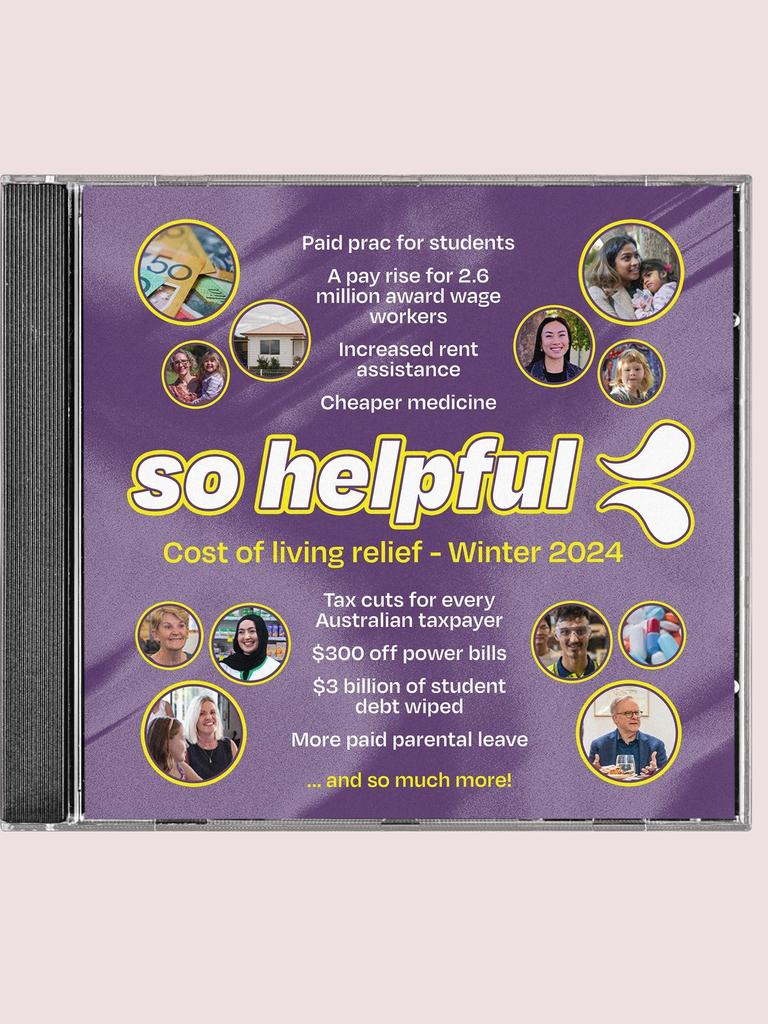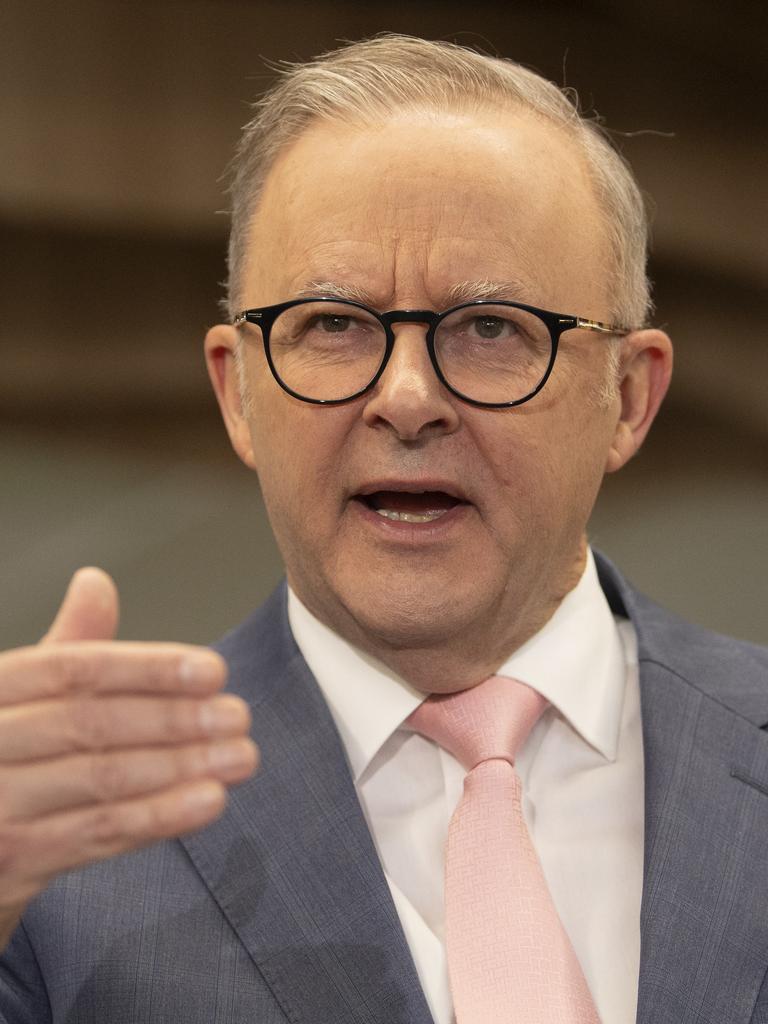‘Just isn’t it bro’: Anthony Albanese under fire over cost of living ‘joke’
Prime Minister Anthony Albanese has faced backlash following a cost of living ‘joke’, with some calling for his media team to be sacked.
Australians have lashed out at Prime Minister Anthony Albanese over a “cringe” social media post appearing to make light of the cost-of-living crisis.
Mr Albanese posted a photo imitating the iconic So Fresh Australian compilation CD series, with the cover instead saying “so helpful, cost of living relief — Winter 2024”.
In place of top songs, the album cover references government initiatives including “cheaper medicine”, “tax cuts for every Australian taxpayer”, “$300 off power bills” and “$3 billion of student debt wiped”.
“New album just dropped,” Mr Albanese captioned the post.


However people were quick to lash out at the post, with some branding the post as insensitive.
“This just isn’t it bro. You’re making light of a very situation currently happening in our country. Whatever intern posted this, be better,” one person commented.
“The cost of living isn’t a joke! You created it and live off our taxes,” another wrote.
“People are losing their homes because of you and what’s your response,” another commented.
Others called for the media team to be sacked, while a few took the opportunity to claim young people may not even understand the reference.
It comes after the Albanese government came under fire for some of the cost of living relief measures, including the $300 energy rebates.
Australian households were set to save $300 on electricity bills as part of the federal budget, with Treasurer Jim Chalmers telling the National Press Club in May the relief was tipped to help people “right now” amid cost of living pressures.
“We have done it in a more substantial way in this budget and it’s a really crucial part of our cost of living package,” he said.
“This is all about taking pressure off people and the benefit for every household will be greater than the forecast.”
A number of economists were highly critical of the rebates, arguing they threatened to exacerbate already persistent inflationary pressures as households that can cover their electricity expenses themselves will simply spend the money elsewhere, adding to demand.






